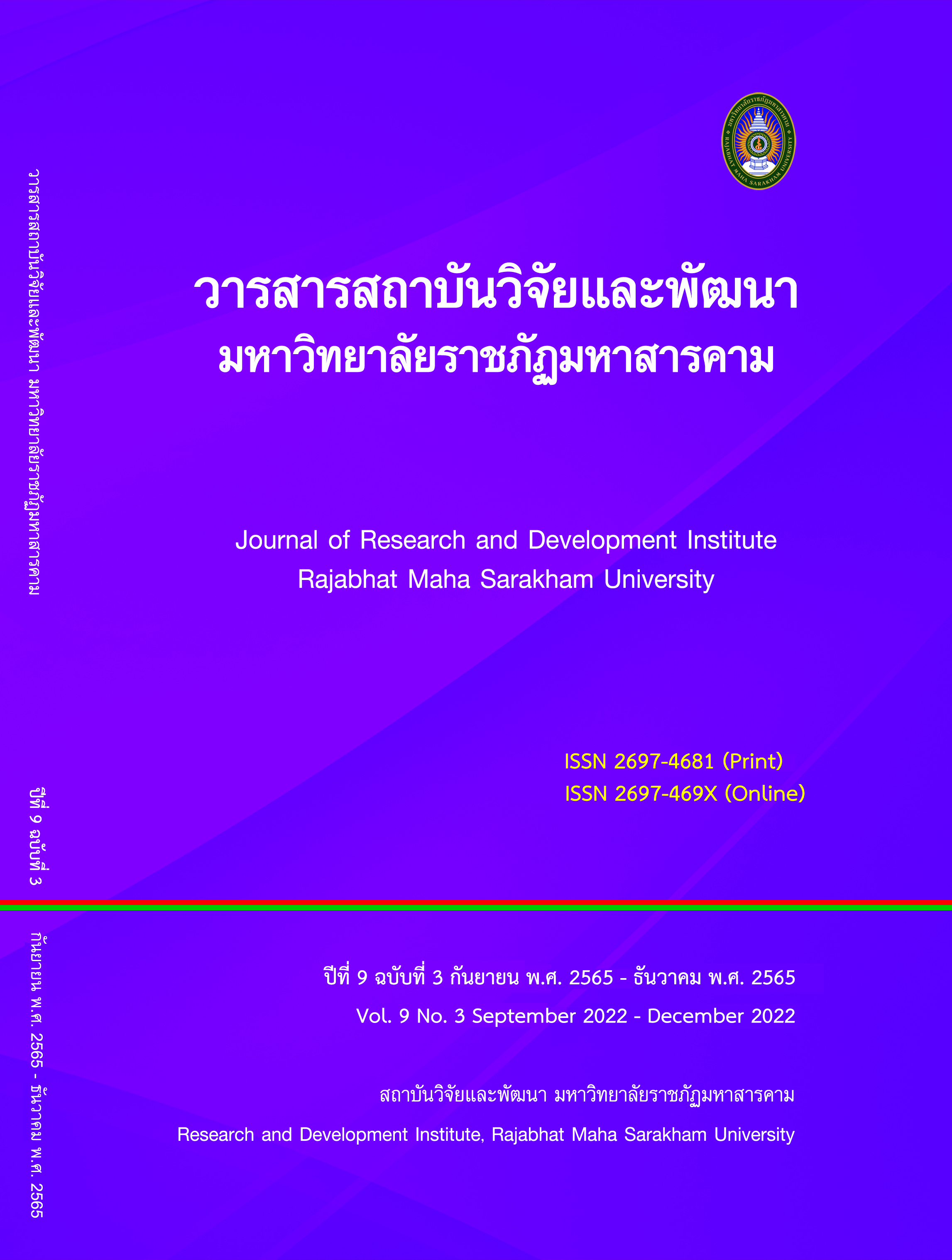Developing Model of Charismatic Leadership to Small School Administrators
Keywords:
Leadership, Charismatic Leadership, School administrators, Leadership Model, Charismatic, Administrators, Small School, Model of Charismatic LeadershipAbstract
The purpose attempts to study factors of charismatic leadership, developing model of charismatic leadership, and study affecting the used to model of charismatic leadership. A mixed method research via action research to study with 3 schools, by key informant including directors and teachers of 27 persons, and the sample of 150 persons. The collections to involved synthesizing documentary, visit study, interview questionnaire, and questionnaires to data analysis was analyzed by descriptive statistical analysis, frequency, percentage, mean and standard deviation.
The results were to : 1) suitability level to charismatic leadership factors of high levels, 2) model of charismatic leadership such as 6 factor were to, (1) extremity vision (2) high personnel risk (3) idealized influence (4) inspirational motivation (5) intellectual stimulation and (6) individualized consideration. And (3) suitability and usefulness to model of most levels. Effecting use to the model from a training, by trainer groups have to knowledge, understanding to effectively of most levels.
References
Boonchitradul, N. (2015). Executive Notes. Chiangmai : Orange Group Tactics Desing.
Chankaew, W. (2012). Creative Leadership Model of School Administrators under Surat Thani Primary Educational Service Area Office, District 3. Pathum Thani : Rangsit University.
Chiangkul, W. (2010). The science and art of leadership in the modern world. Bangkok: Winyuchon Publishing House.
Chongwisarn, R. (2007). Leadership: Research Theories and Approaches to Development. (2nd ed). Bangkok: Publishing House of Chulalongkorn University
Jedaman, P. et al. (2017). Ustainable leadership in the 21st century under the framework of Thailand 4.0 education. Journal of Industrial Education. Vol. 16(2), 1-9.
Jindapol, W. (2016). Paradigm Shift, Culture and Values of Faculty and Government Official Council Committees: A Case Study of Personnel of Rajabhat University in Bangkok. Bangkok : Suan Sunandha Rajabhat University.
Khon Kaen Secondary Educational Service Area Office. (2021). Problems with leadership of small school administrators. Khon Kaen: Khon Kaen Secondary Educational Service Area Office.
Lorsuwannarat, T. (2005). The organization of knowledge : from concept to practice. Bangkok : Thammamon Printing.
Muangsong, K. (2007). Strategic Leadership Development Model of Basic Education Administrators. Chonburi: Burapha University.
Office of Personnel and Legal Management System Development Office of the Basic Education Commission. (2016). Research Report. Enhancement of Personnel Management 4.0 in the 21st Century under the National Strategic Framework to Drive Sustainable Education. Bangkok: Office of Personnel and Legal Management System Development Office of the Basic Education Commission.
Office of the Secretariat of the Council of Education. (2018). 20-year national strategy, revised (2018-2037). Bangkok: Office of the Secretariat of the Council of Education.
Runcharoen, T. (2010). Professionalism in organizing and administering education in the era of educational reform. (Revised edition) for the 2nd round of reform, 3rd round of external assessment (5thed). Bangkok: Millet.
Sukmat, A. et al. (2017). Sustainable Leadership in the 21st Century within the Education Framework of Thailand 4.0. Journal of Industrial Education. Vol. 16(2). 1-9.
Thongkumhang, K. (2007). Ethical leadership development strategies for executives private school Bangkok: Chulalongkorn University.
Downloads
Published
How to Cite
Issue
Section
License
Copyright (c) 2022 Journal of Research and Development Institute Rajabhat Maha Sarakham University

This work is licensed under a Creative Commons Attribution-NonCommercial-NoDerivatives 4.0 International License.
Articles that are published are copyrighted by the authors of the articles







